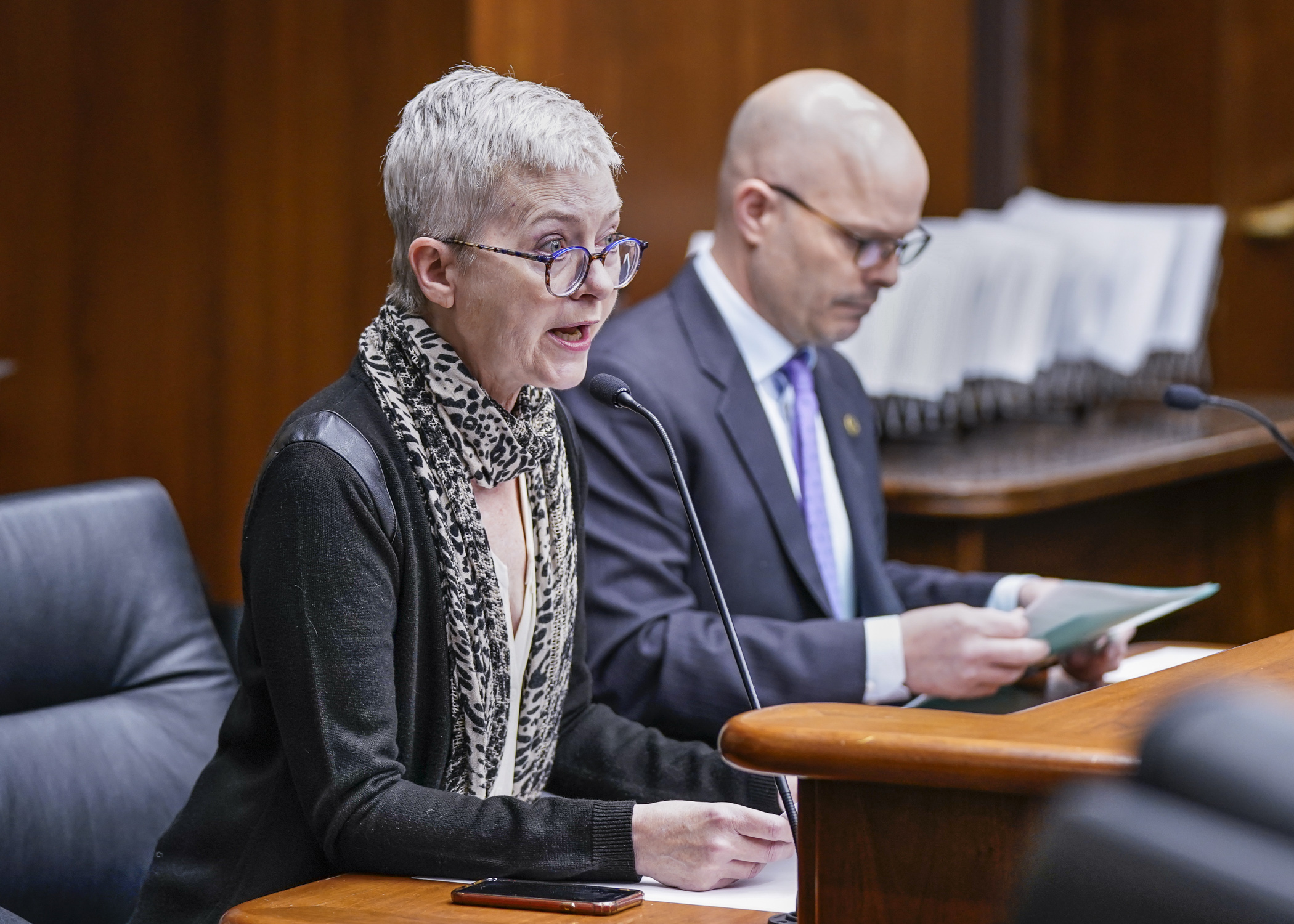Lights, camera, tax credit! Bill aims to entice more filmmakers to shoot in Minnesota

Careers in the arts can be difficult. Some make it big, but many do not.
So it’s best to have a Plan B.
A case in point: Rep. Dave Lislegard (DFL-Aurora), who played Union Member #1 in the film North Country, seems to have found other work while his acting career is on hiatus.
But his fondness for the big screen is still evident, as he has taken on the lead role of sponsoring HF2059, which would boost a state tax credit to entice more filmmakers to shoot their projects in Minnesota.
The bill would increase the amount of money allocated to the film production credit in a taxable year by more than fivefold, from the current $4.9 million to $24.9 million.
The House Economic Development Finance and Policy Committee approved the bill Friday and referred it to the House Taxes Committee.
As filming on North Country was wrapping up in early 2005, Lislegard said he became aware of the powerful incentive these tax credits can have on film producers who are making their decisions based on the bottom line.
Lislegard said the production moved to New Mexico to finish shooting the film for one simple reason: New Mexico had a tax incentive and Minnesota at the time did not.
“Make no mistake about it, this is a jobs creator. It is an opportunity that we can build on,” he said.
Lislegard said the film production tax credit “is not giving money to Hollywood elitists.”
“What I saw happen when I was able to participate in this film, I saw an industry come in, hire local people, stimulate our economy, like I’ve never seen before in such a short burst,” he said.
Current law also has the credit sunsetting at the end of 2024, which the bill would eliminate.
The sunset elimination is a key provision in the bill, said Melodie Bahan, executive director of Minnesota Film & TV, a nonprofit film commission that promotes and supports the state’s production industry.
Film producers need to know that financial incentives are stable and will last for the duration of a project, which could be many years in the case of a multi-season television series, she said.
“(Having a sunset) has cut us out of many of the discussions about films in development and certainly out of any discussion of an ongoing series.”
Related Articles
Search Session Daily
Advanced Search OptionsPriority Dailies
Legislative leaders set 2026 committee deadlines
By Lisa Kaczke Legislative leaders on Tuesday officially set the timeline for getting bills through the committee process during the upcoming 2026 session.
Here are the three deadlines for...
Legislative leaders on Tuesday officially set the timeline for getting bills through the committee process during the upcoming 2026 session.
Here are the three deadlines for...